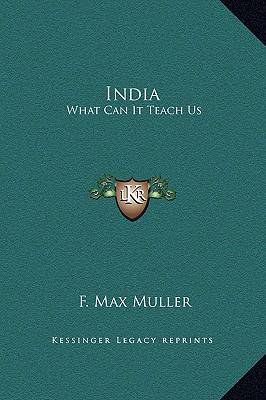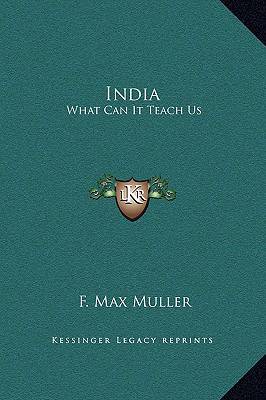
- Afhalen na 1 uur in een winkel met voorraad
- Gratis thuislevering in België vanaf € 30
- Ruim aanbod met 7 miljoen producten
- Afhalen na 1 uur in een winkel met voorraad
- Gratis thuislevering in België vanaf € 30
- Ruim aanbod met 7 miljoen producten
Zoeken
Omschrijving
India: What Can It Teach Us is a book written by F. Max Muller, a renowned German philologist and Orientalist. The book is a collection of lectures delivered by Muller at Cambridge University in 1882, where he explores the spiritual and philosophical teachings of India, and their relevance to the Western world. Muller begins by discussing the origins of Indian civilization, its religious traditions, and the role of the Vedas in shaping Hinduism. He then delves into the teachings of the Upanishads, which he describes as the ""most profound and sublime"" of all Indian texts. Muller also examines the teachings of Buddhism, Jainism, and Sikhism, highlighting their similarities and differences with Hinduism. Throughout the book, Muller emphasizes the importance of understanding Indian philosophy and spirituality, not only as a means of gaining knowledge but also as a way of enriching one's own life. He argues that the teachings of India offer valuable insights into human nature, the meaning of existence, and the pursuit of happiness. India: What Can It Teach Us is a thought-provoking and insightful book that continues to be relevant today, as more and more people seek to understand the wisdom of the East and its potential to transform Western culture.1883. A course of lectures delivered before the University of Cambridge. The author is an assiduous student of philology and regarded it as an important key to history and intellectual progress. The lectures contained in this volume are entitled: What Can India Teach Us; On the Truthful Character of the Hindus; The Human Interest of Sanskrit Literature; Objections; Lessons of the Veda; Vedic Deities; Veda and Vedanta.This scarce antiquarian book is a facsimile reprint of the old original and may contain some imperfections such as library marks and notations. Because we believe this work is culturally important, we have made it available as part of our commitment for protecting, preserving, and promoting the world's literature in affordable, high quality, modern editions, that are true to their original work.
Specificaties
Betrokkenen
- Auteur(s):
- Uitgeverij:
Inhoud
- Aantal bladzijden:
- 286
- Taal:
- Engels
Eigenschappen
- Productcode (EAN):
- 9781169311190
- Verschijningsdatum:
- 10/09/2010
- Uitvoering:
- Hardcover
- Formaat:
- Genaaid
- Afmetingen:
- 178 mm x 254 mm
- Gewicht:
- 712 g

Alleen bij Standaard Boekhandel
+ 124 punten op je klantenkaart van Standaard Boekhandel
Beoordelingen
We publiceren alleen reviews die voldoen aan de voorwaarden voor reviews. Bekijk onze voorwaarden voor reviews.








